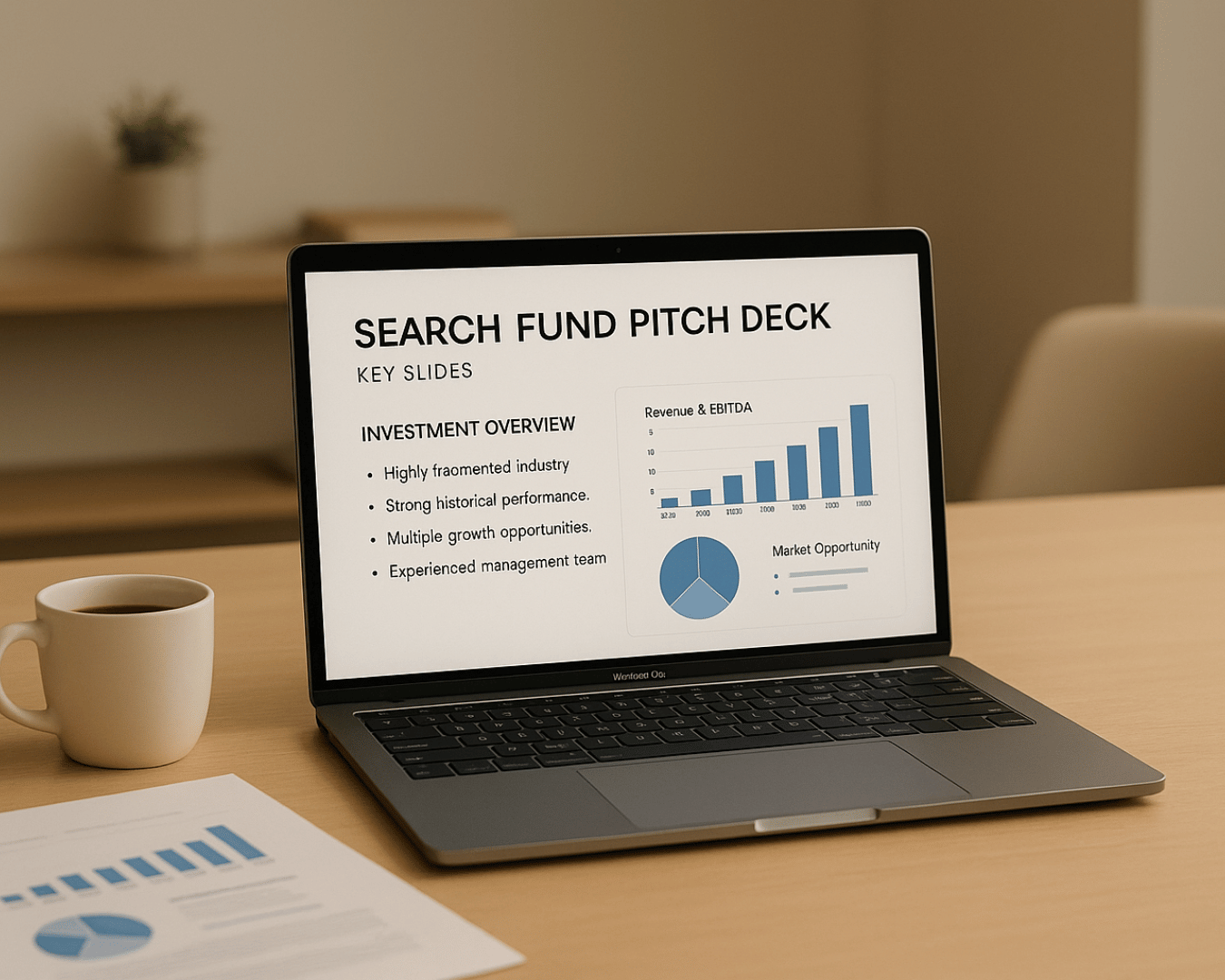Choosing the right loan broker is critical for securing financing that fits your business needs. A skilled broker connects you to lenders, manages the application process, and ensures you get terms that align with your industry. However, not all brokers are created equal, and picking the wrong one can lead to mismatched loans or poor terms. Here's what you need to know:
- What Brokers Do: They evaluate your financials, connect you to lenders, and handle paperwork to simplify the loan process.
- What to Look For: Industry experience, a strong lender network, a solid track record, and transparent fees.
- Questions to Ask: Inquire about their clients, lender relationships, fee structure, and refund policies.
- Red Flags: Avoid brokers who lack transparency or push unsuitable loans.
The right broker can save you time, improve your chances of approval, and help you secure better terms. Take the time to evaluate their expertise and ensure they understand your industry.
How to Talk to a Business Loan Broker
What Small Business Loan Brokers Do
To make informed decisions, it’s essential to understand what small business loan brokers actually do and how their expertise can shape your loan terms. These brokers act as go-betweens, connecting your business with lenders to help secure financing tailored to your specific needs. Essentially, they align your funding requirements with the most suitable financial institutions.
Core Responsibilities of Loan Brokers
At the heart of a loan broker’s job is evaluating your business’s financial situation and finding lenders that align with your goals. This starts with analyzing your credit profile, financial health, and business objectives to pinpoint the type of funding that best fits your needs.
Once they’ve assessed your situation, brokers tap into their network of banks, credit unions, online lenders, and alternative financing options. This network often includes specialized loan products designed for particular industries.
Beyond matchmaking, brokers handle much of the legwork. They prepare your paperwork, structure your application to highlight financial strengths, and pre-screen your financials to minimize the risk of rejection. Many brokers also focus on specific industries or loan types - like SBA loans, equipment financing, or factoring - allowing them to offer insights tailored to your sector’s unique challenges.
Benefits of Working with a Loan Broker
One major perk of working with a broker is gaining access to a wider pool of lenders than you’d likely find on your own. Their established relationships with financial institutions often translate into better loan terms.
Brokers also save you time and effort by managing lender research and overseeing the application process. This frees you up to focus on running your business while they take care of the financing hunt.
Their industry-specific expertise is another key advantage. For instance, a broker who specializes in retail might prioritize inventory financing during peak seasons, while one with a focus on restaurants could recommend expansion loans to support opening new locations. This specialized knowledge ensures they can identify the most relevant loan products and connect you with lenders who understand your industry.
Additionally, brokers can speed up the funding process. Their ability to match your business with the right lenders and craft a well-structured application often leads to faster approvals and funding timelines. By understanding what brokers do and how they operate, you’ll be better equipped to ask the right questions and choose the right partner for your financing needs.
How to Evaluate Loan Brokers
Choosing the right loan broker is a key step in securing financing that aligns with your business needs. To make an informed decision, focus on a few essential factors that can influence your ability to obtain favorable loan terms and timely funding.
Industry Knowledge and Experience
A good loan broker should offer financing options tailored to your industry, not just generic loan packages. Their understanding of your business cycle and familiarity with industry-specific financial products are crucial. To gauge their expertise, ask about recent deals they've handled in your sector and the obstacles they’ve helped clients navigate. Real-world examples can provide a clearer picture of their ability to meet your needs.
Lender Network and Relationships
A broker’s lender network is just as important as their industry knowledge. Brokers with strong, diverse lender relationships are often better equipped to secure competitive terms and faster approvals. Ask about the size of their network and how frequently they engage with their lending partners. Brokers who stay on top of changing lender requirements are typically better prepared to adapt to market shifts.
Track Record and Client References
A broker’s track record speaks volumes about their reliability. Look for brokers who can share specific examples of successful transactions, especially with businesses similar to yours in size and industry. Request client references to learn about their communication style, how well they managed expectations, and whether the final loan terms aligned with initial discussions. Additionally, check online reviews from credible sources, but be wary of vague claims without substantial evidence to back them up.
Clear Fee Structures
Transparency around fees is critical. Reputable brokers will clearly outline their compensation structure and any potential conflicts of interest. Typically, brokers earn a commission when a loan closes, but some may also charge fees for services like application preparation or due diligence. Make sure to ask if their commission rates vary depending on the lender, as this could influence their recommendations. Always request a written agreement that details all fees, payment schedules, and contingencies in case no loan is secured.
sbb-itb-a3ef7c1
Questions to Ask Potential Brokers
Asking the right questions can reveal a broker's expertise and ability to secure the best financing for your business. These conversations are key to determining if they’re the right fit for your needs.
Questions About Industry Experience
Start by asking, "What percentage of your clients operate in my industry?" This will give you a sense of their familiarity with your sector. For instance, a broker who primarily works with restaurants may have a better grasp of seasonal cash flow challenges than one who focuses on manufacturing.
Another helpful question is, "Can you describe the most common financing challenges businesses in my industry face?" A knowledgeable broker should be able to pinpoint specific issues, like equipment financing hurdles for construction companies or inventory funding struggles for retailers.
You can also ask, "What types of loan products do you most frequently recommend for businesses like mine?" Their answer will shed light on their understanding of financing solutions that align with your industry’s needs. For example, they might explain when SBA 504 loans are ideal for real estate purchases versus the flexibility of SBA 7(a) loans for working capital.
Once you’ve gauged their industry expertise, shift the focus to their lender connections.
Questions About Lender Relationships
A broker’s network of lenders plays a big role in finding competitive financing options. Ask, "How many active lenders do you work with, and which ones do you typically recommend for businesses in my industry?" A broker with a wide network that includes banks, credit unions, online lenders, and alternative financing providers can offer more tailored options.
Follow up with, "How do you determine which lender is the best fit for my specific situation?" A strong response will include details about how they assess your financials, creditworthiness, and business goals to match you with the right lender.
If you’re considering SBA-backed loans, ask, "Do you work with SBA-preferred lenders and Certified Development Companies?" These relationships can make the approval process faster and smoother.
Another important question is, "How often do you communicate with your lending partners about changing requirements or new programs?" Staying updated on lender preferences and underwriting standards ensures your application is strategically presented.
After understanding their lender connections, it’s time to clarify their process and fees.
Questions About Process and Fees
Transparency is critical when it comes to fees. Start by asking, "Can you provide a clear breakdown of your fee structure, including any upfront costs, ongoing fees, or commissions?" This helps you avoid surprises and ensures you know exactly what you’re paying for.
Next, inquire, "Do you require any upfront payments before securing financing?" This will clarify whether you need to pay anything out-of-pocket before your loan is approved.
Additionally, ask, "How does your commission structure vary between different lenders?" Since commission rates can differ, this question ensures their advice is based on your needs, not on a higher payout for them.
Finally, ask, "What happens to any fees I've paid if you're unable to secure financing for my business?" A clear answer here will outline refund policies or adjustments if they can’t deliver results.
These questions can help you evaluate a broker’s expertise, lender relationships, and fee transparency, ensuring you choose the right partner for your financing needs.
Warning Signs to Avoid
While most brokers operate with integrity, there are certain red flags that could signal their priorities might not align with yours. Recognizing these signs is crucial to ensure you get financing that truly fits your needs.
Lack of Fee and Process Transparency
A trustworthy broker should be upfront about their fees and how they’re calculated. If you’re unable to get a clear explanation of their compensation, consider it a red flag. The same goes for a lack of transparency about their relationships with lenders or their overall process. This could indicate they don’t have well-established procedures in place.
Pushing Unsuitable Loans
Another warning sign is when brokers push loan products that don’t match your needs. Brokers working on commission might encourage you to take out larger loans because their earnings are tied to the loan size. For example, if you’re seeking $50,000 in funding but are urged to take $100,000, this could point to a commission-driven motive.
Additionally, if a broker consistently favors specific lenders without offering a clear explanation, it might indicate a bias toward those lenders due to commissions. This could limit your options and prevent you from finding financing that better suits your requirements.
To safeguard yourself, have an open discussion about how the broker is compensated. Ask about their payment structure, how many lenders they typically approach, and whether they receive fees from lending institutions. This will give you a better sense of whose interests they truly represent.
Making Your Final Decision
Selecting the right loan broker comes down to a few key factors: transparency, expertise, and a proven track record. The broker you choose should clearly lay out their fee structure - no hidden costs or surprises - and demonstrate a solid understanding of the lending industry.
Be sure to check their transaction history and verify their credentials. A good broker should be familiar with a variety of loan programs, including SBA 7(a) and 504 loans, as well as alternative financing options. This versatility allows them to recommend funding solutions tailored to your specific goals and deal structure.
A broker with a strong network of lenders - spanning banks, credit unions, non-bank lenders, and alternative financing providers - can significantly expand your funding opportunities.
Beyond qualifications, effective communication is what truly builds a reliable partnership. Look for a broker who answers your questions promptly, keeps you updated throughout the process, and explains the pros, cons, and long-term effects of different loan terms. It's also smart to verify their professional credentials through organizations like the International Business Brokers Association (IBBA) or Certified Business Intermediary (CBI). Additionally, research their background to ensure there are no complaints or legal issues.
For those looking to simplify this process, Clearly Acquired offers tailored loan brokerage services designed for Main Street to lower mid-market businesses. Their AI-powered platform connects you with top lenders and provides acquisition pre-qualification through secure financial verification. Whether you're pursuing SBA loans or more creative financing options like seller notes or mezzanine capital, they guide you toward the best funding mix for your unique needs.
Taking the time to thoroughly evaluate potential brokers pays off. A skilled broker isn't just a one-time resource - they become a long-term partner, helping you navigate and achieve your ever-evolving business goals.
FAQs
How can I check if a small business loan broker is trustworthy and experienced?
When evaluating a small business loan broker, it's important to ensure they are reliable and knowledgeable. Start by verifying that they hold the necessary licenses and certifications. Take some time to explore their online presence - reviews and ratings on platforms like the Better Business Bureau or TrustPilot can offer valuable insights into their reputation. For extra peace of mind, consider using resources like SCORE or the SBA Lender Match tool to confirm their credibility. It's also a good idea to prioritize brokers who have experience working with businesses in your industry, as they'll be better equipped to understand and address your unique needs.
Why is it important to work with a loan broker who understands my industry?
Choosing a loan broker with specialized knowledge in your industry can greatly improve your chances of finding the right financing for your business. These brokers are well-versed in the specific challenges and financial requirements your industry faces, enabling them to suggest solutions that fit your needs.
Additionally, they often have strong connections with lenders who focus on your sector, giving you access to better loan terms and quicker approval processes. Partnering with someone who truly understands your business can save you time, minimize stress, and help you secure funding that supports your objectives.
How can I make sure a loan broker’s fees are clear and fair for my business?
To make sure a loan broker's fees are both clear and reasonable, start by checking if they charge any upfront fees. Most well-regarded brokers work on a success-fee basis, meaning they only get paid after successfully securing financing for you. Be cautious of brokers who ask for payment before producing results.
Request a detailed breakdown of their fee structure. Is it a flat fee? A percentage of the loan? Or perhaps a mix of both? A reliable broker will openly share this information and explain how their fees align with your business objectives. Taking the time to understand these details can help you avoid surprise costs and ensure the broker's priorities match your own.











%20%20Process%2C%20Valuation%20%26%20Legal%20Checklist.png)



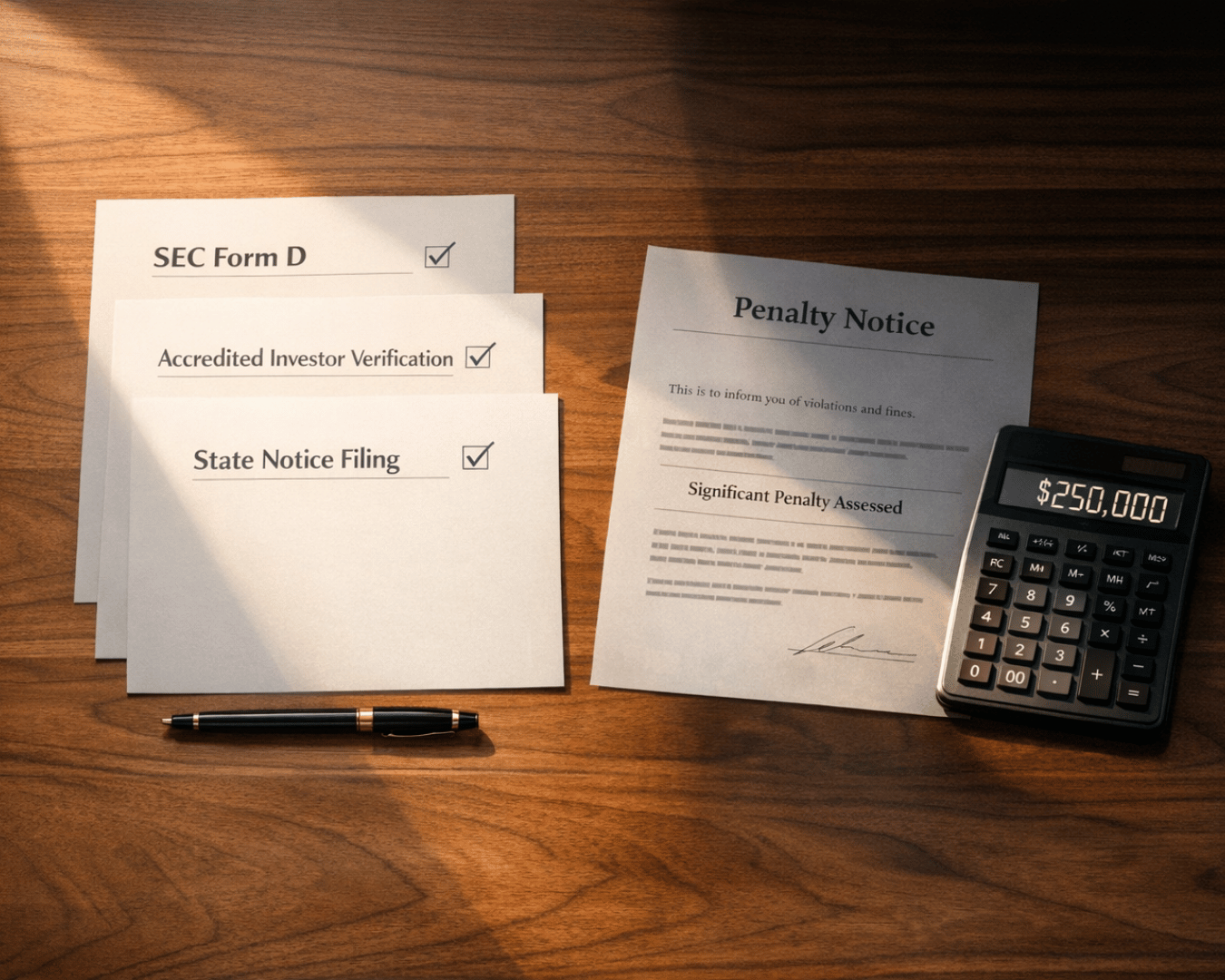







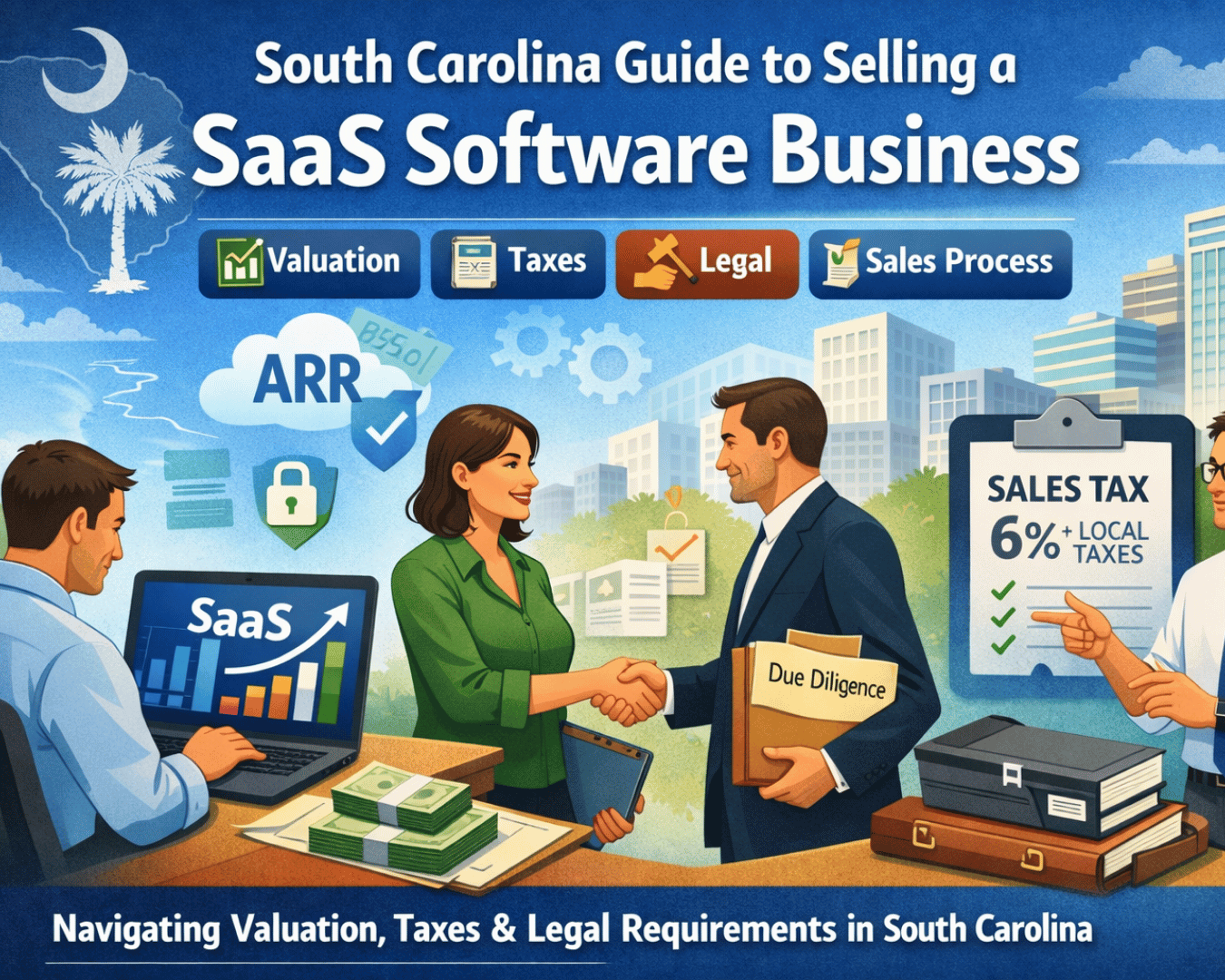







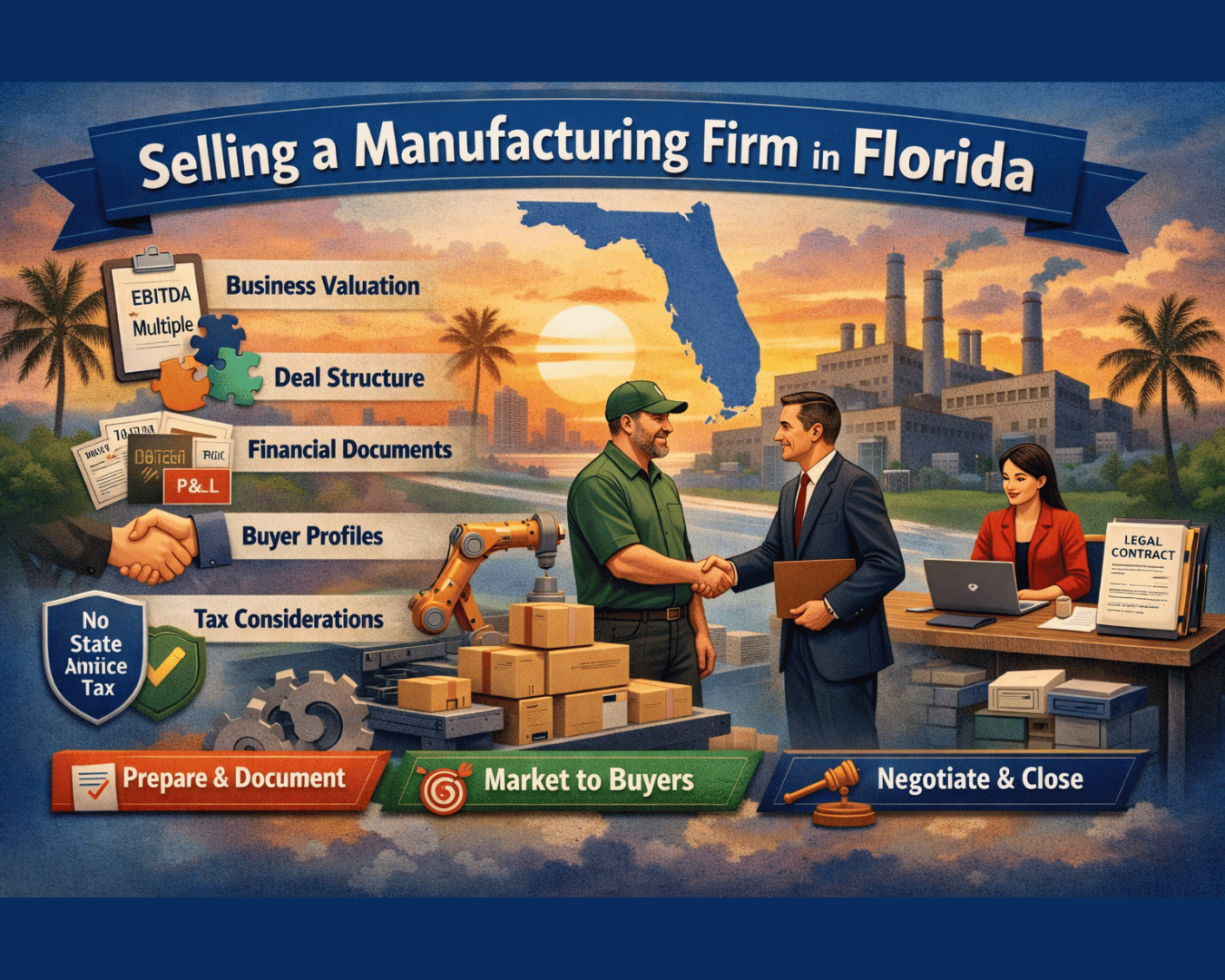
%20in%20a%20%2420M%20Sale..png)
%20vs.%20Conventional%20Loans%20for%20business%20acquisition.png)








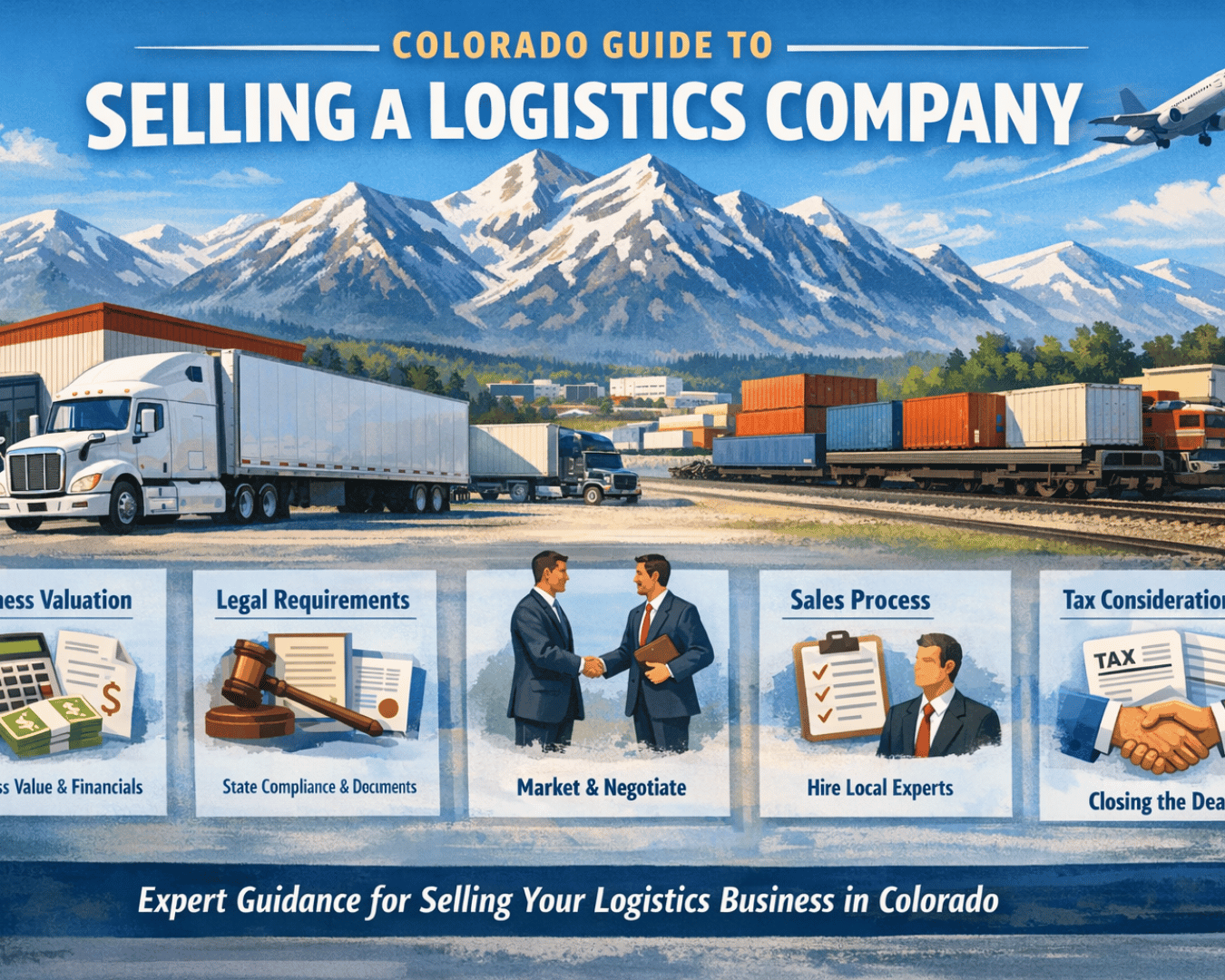













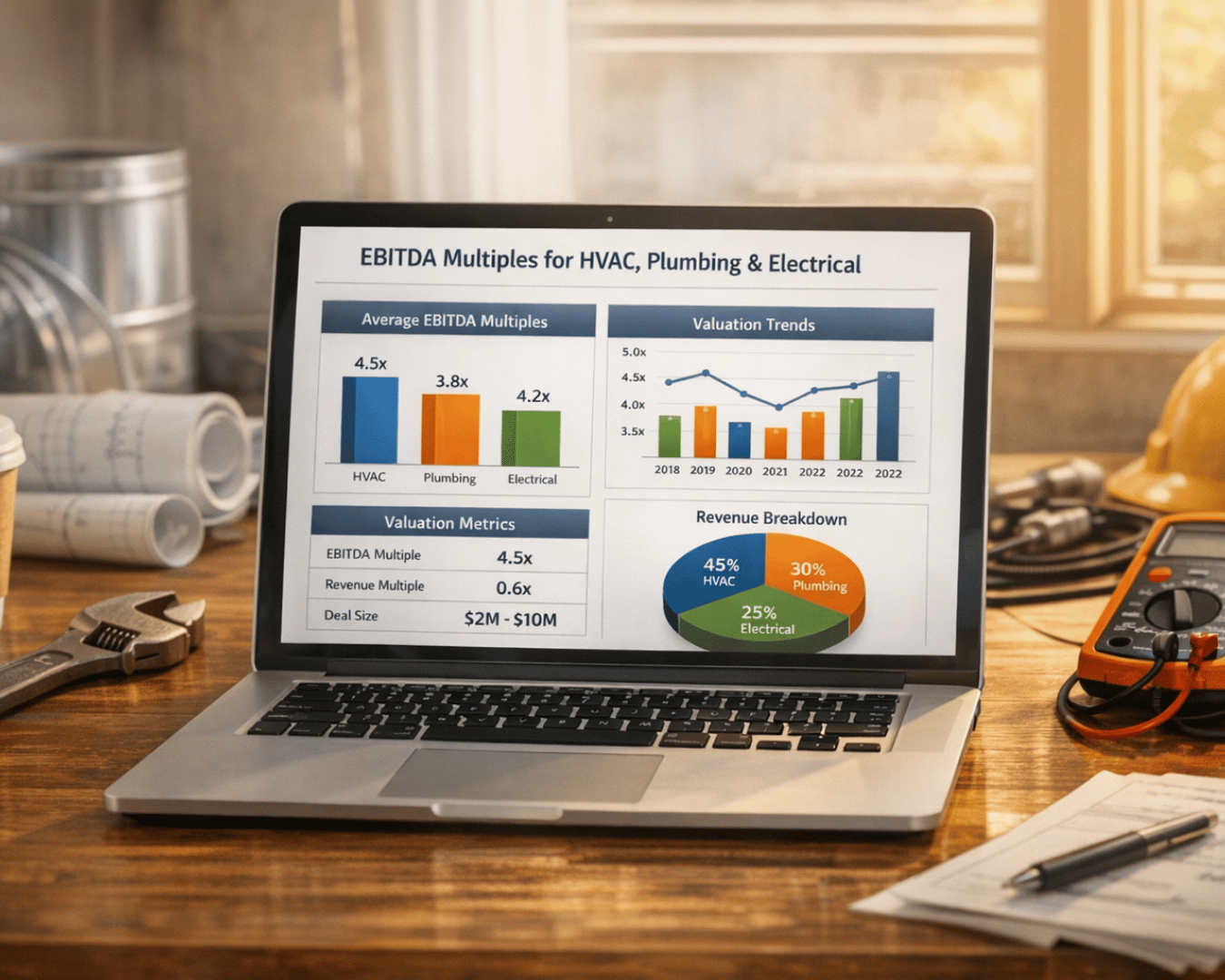
.png)


.png)
.png)

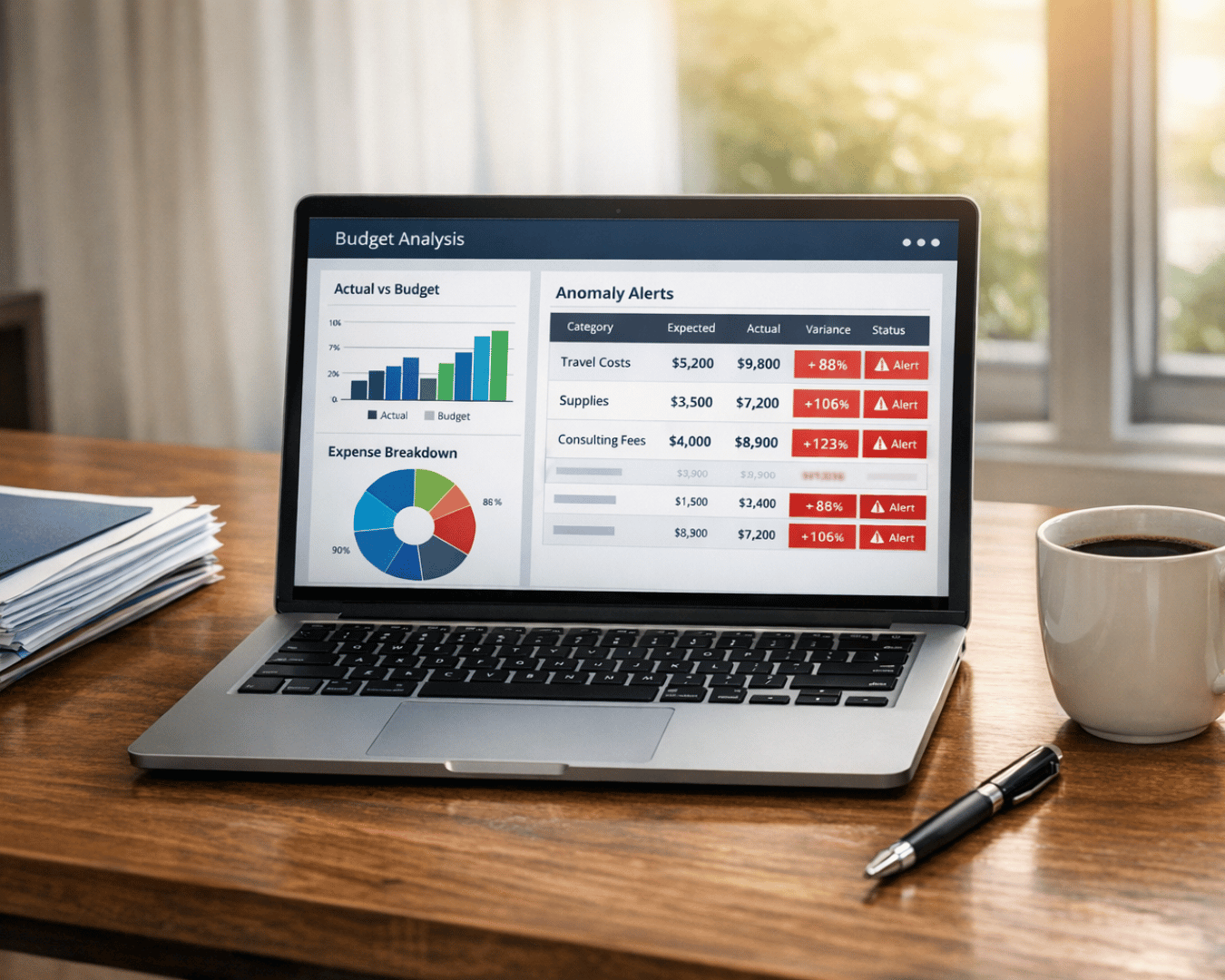






























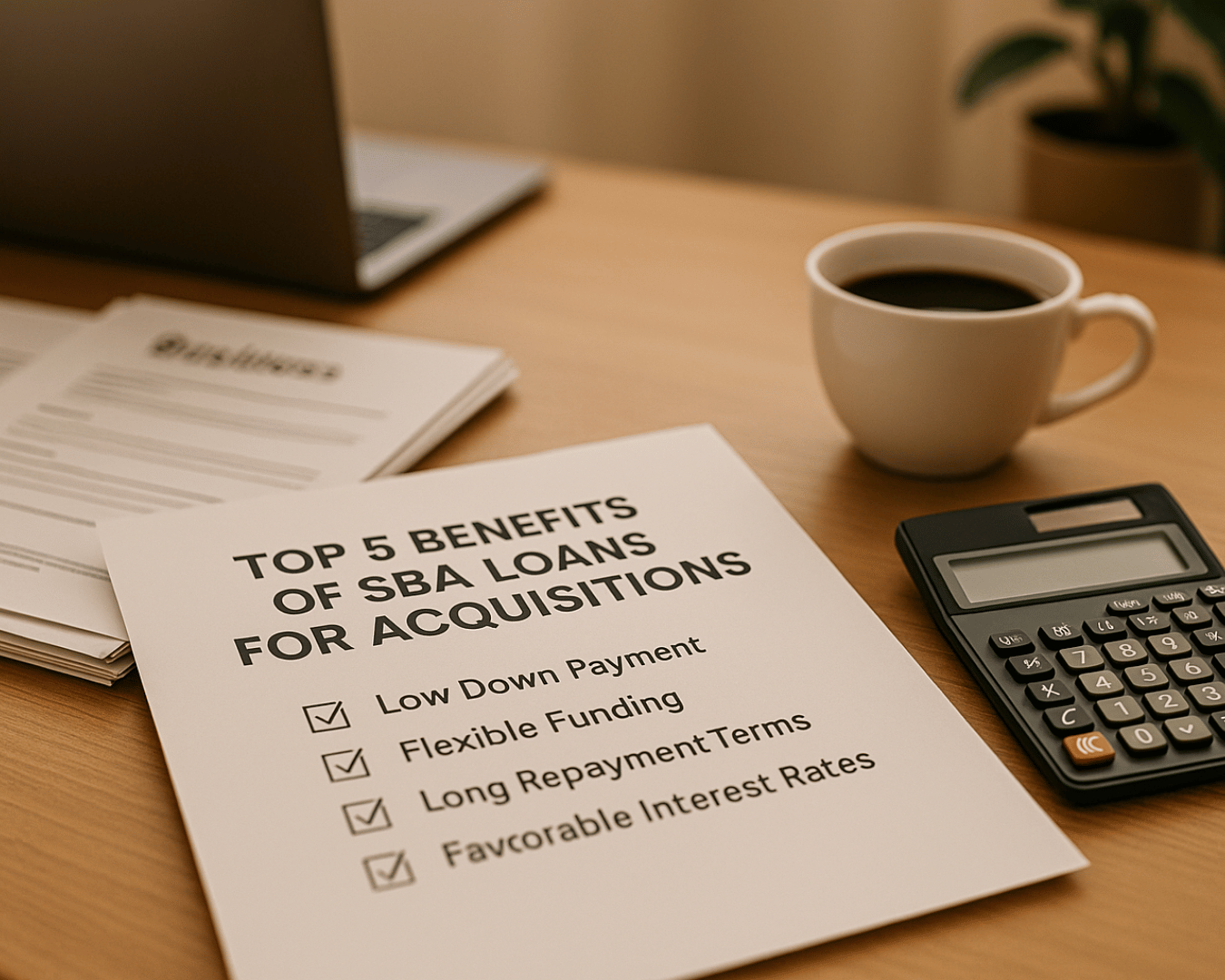

.png)
